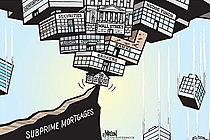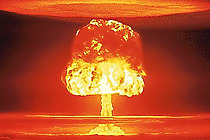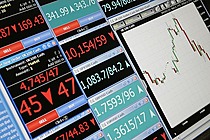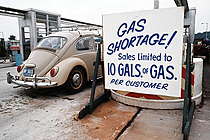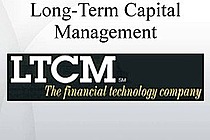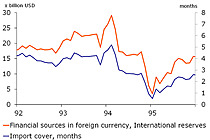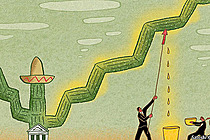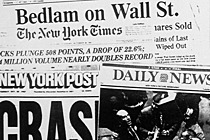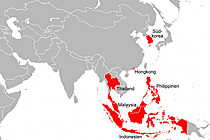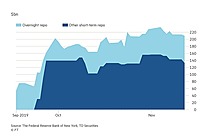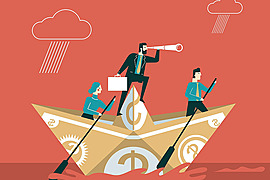
Crisis
A crisis is an economic situation wherein a country experiences a sudden downturn brought on by a financial crisis. Manifested in a significant decline in production, marketing and consumption of goods and services, a crisis is also characterized by high high unemployment, near-bank collapse, and an economic contraction. A crisis also experiences drying up of liquidity and rising or falling prices due to inflation or deflation. It can also take the form of a recession or a depression, with violation of existing production relations and bankruptcy of enterprises.
Experts
Adam Posen
Aimen Dean
Alberto Gallo
Alex Pollock
Andrew Huszar
Bill Shaw
Brad Setser
Charles Gasparino
Christopher Dembik
David Kilcullen
George Magnus
Gillian Tett
Jim Chanos
John Cochrane
John Schindler
John Turner
Kenneth Rogoff
Larry Summers
Laurel Miller
Loretta Napoleoni
Mark Blyth
Matt Stoller
Michael Burry
Michael Lewis
Nouriel Roubini
Paul Tucker
Pedro da Costa
Randall Kroszner
Robert Wiedemer
Sheila Bair
Simon Potter
Steve Hanke
Thomas Mayer
Tom Burgis
Tony Greer
Tuomas Malinen
- Begin on the margins - with markets for junk bonds and other high-yield (i.e. high risk) debt freezing first
- Later spread to other bond markets as investors panic about the future
- Eventually all borrowing and lending comes to a halt
-
Investors decide to sit on
their hands and wait for more certainty and improved market conditions.

